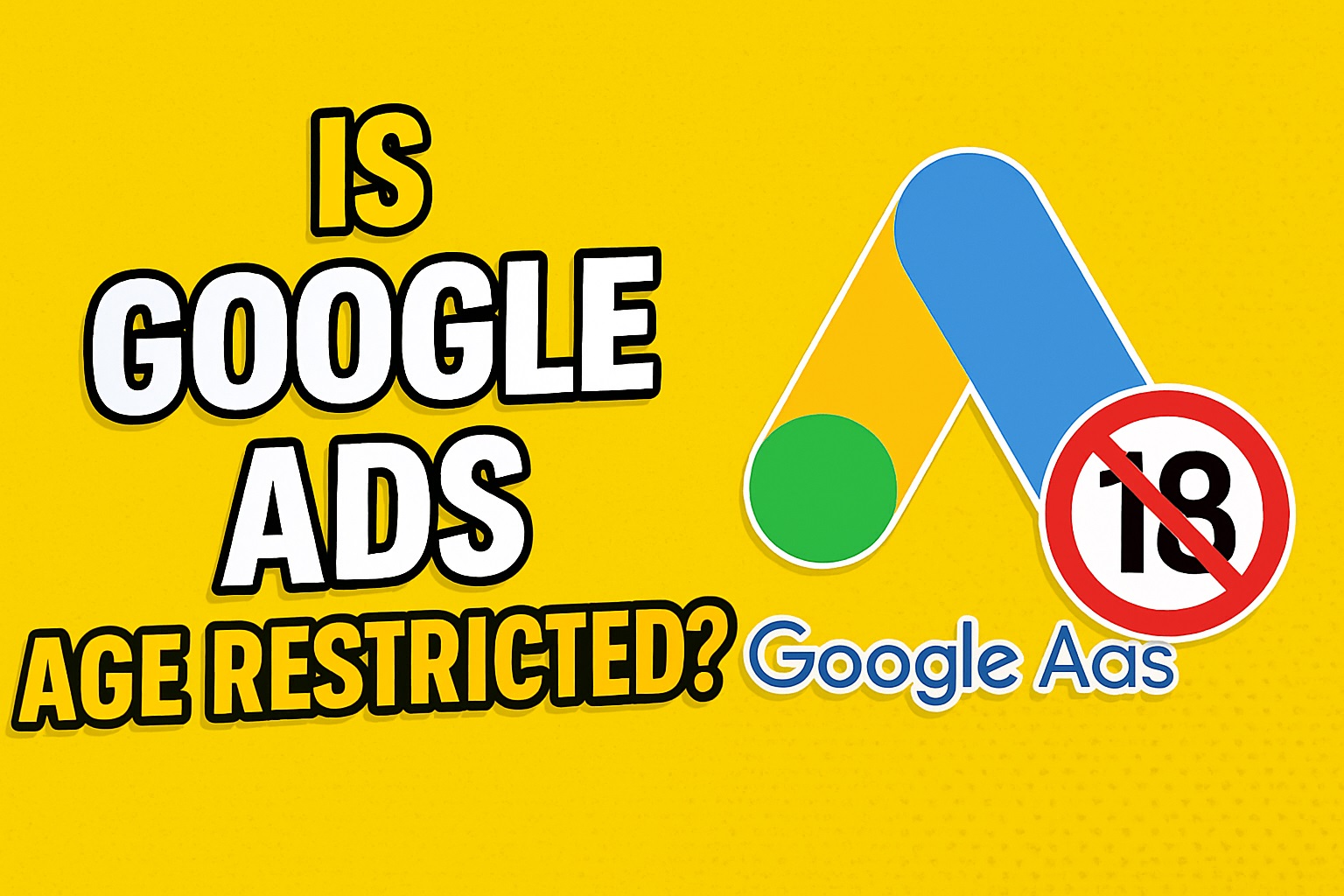Google Ads is a leading online advertising platform that allows businesses to promote products and services across Google’s network. However, like all advertising platforms, it is governed by policies to ensure responsible use. One key area is age-related restrictions, which impact both who can use Google Ads as advertisers and how they can target users by age.
Understanding these age restrictions is important for businesses to comply with Google’s terms and avoid penalties or disapproved ads. This article explains the minimum age requirements for advertisers, policies on age-restricted content, and how age-based targeting works in Google Ads.
Minimum Age Requirement for Google Ads Advertisers
Google requires that advertisers meet certain age criteria to open and manage a Google Ads account. Specifically, advertisers must be at least the age of majority in their country or region. For example, in most countries, this means individuals must be 18 years or older to create an account and enter into legally binding agreements.
This requirement ensures that users of the platform can take legal responsibility for their advertising activities, including compliance with policies and payment obligations. Additionally, during account creation, Google may request billing information that typically requires the account holder to be a legal adult.
In cases where an advertiser is representing an organization or business, the account still must be managed by an individual who meets these age requirements.
Age-Restricted Content Policies
Google Ads enforces strict policies around advertising certain types of age-sensitive products and services. Advertisers promoting these categories must comply with both Google’s policies and applicable laws in the regions where their ads appear.
Examples of age-restricted content include:
- Alcohol: Ads for alcoholic beverages are allowed only in countries where such advertising is legal, and advertisers must not target minors.
- Gambling: Gambling-related ads require certification from Google and can’t target users below the legal gambling age in the targeted region.
- Adult Content: Ads with adult-oriented material are subject to stringent restrictions and must not target users under 18.
- Health-related products: Certain health and pharmaceutical products (e.g., supplements, medications) may also have age restrictions.
Google uses various signals to determine user age, and advertisers must set appropriate targeting and comply with these content-specific rules. Failure to comply can result in disapproved ads or account suspension.
Age-Based Targeting in Google Ads
Google Ads gives advertisers the ability to target or exclude audiences based on age demographics. When setting up campaigns, advertisers can choose to show ads to specific age groups (e.g., 18–24, 25–34, 35–44, etc.) or exclude certain age ranges to align with product suitability and compliance requirements.
However, it’s important to note that Google’s age data is based on user-provided information and inferred signals, so it may not always be 100% accurate. This means age targeting can help refine audience reach but should not be solely relied upon for strict legal compliance with age-related advertising restrictions.
Additionally, Google may limit age targeting for sensitive categories, automatically preventing advertisers from targeting users under a certain age for regulated products such as alcohol or gambling.
Using age targeting effectively allows businesses to focus their advertising budget on the most relevant audiences while adhering to both Google’s policies and applicable laws. If you need google ads services check https://ppcmajestic.com/
Conclusion
Age restrictions are an important part of advertising responsibly on Google Ads. Advertisers must meet the minimum age requirement to manage accounts, which generally means being at least 18 or the age of majority in their country. In addition, Google enforces policies for age-restricted content, ensuring ads for products like alcohol, gambling, or adult material comply with local laws and target only appropriate audiences.
Age-based targeting features help advertisers reach the right demographic groups, but these tools rely on user data that may not always be exact. Understanding these restrictions helps businesses stay compliant, protect their brand reputation, and ensure their ads reach the appropriate audiences.
